The Ayurvedic technical term āma is used in different contexts, a circumstance that repeatedly leads to misunderstandings. Thus, the term āma can denote a pathological metabolic intermediate, an accumulation of waste products or a certain stage of disease.
Of particular relevance to the lecture topic is the former meaning: āma as a pathological (i.e., abnormal) metabolic intermediate that arises due to a weakened jāṭharāgnis in the digestive tract, spreads throughout the body via rasa, and in this way causes disease (including autoimmune disease).
Simply put, āma can be thought of as improperly digested food. The central digestive fire, weakened by certain factors in diet and lifestyle, is no longer able to carry out the normal digestion of food. Thus, incomplete structures ("immature" material substances or molecules called āma) arise in the digestive tract, which have a tendency to combine with any body components (doṣas, dhātus, upadhātus, and srotas) and interfere with their normal functioning.
Āma thus causes pathological changes in healthy structures and functions in the body. In addition, āma also interferes with the normal effect of therapies and medications. It is therefore important to first carefully examine each patient for āma before starting any therapy and to eliminate this, if present, by specific therapeutic measures (laṅghana and āma-pācana: agni relief and āma decoction) before starting other therapies.
Important: Only sick people can have āma, but not every sick person has āma.
The following clinical manifestations indicate the presence of āma in a patient:
Loss of appetite, stiffness, heaviness, unexplained fatigue and sluggishness, digestive disturbances and altered bala (altered resistance and immunity).
Due to the latter symptom, it seems only logical to also treat autoimmune processes on the basis of the Ayurvedic āma concept. The clinical successes confirm the correctness of this assumption.
The lecture will explain the main features of the āma concept, the therapeutic approach to āma and its particular implementation in autoimmune diseases.

Rosenberg Ayurveda and Wellness-Consulting AG
European Academy for Ayurveda Switzerland
Büelstrasse 17
CH-6052 Hergiswil NW
info@ayurveda-symposium.org
Newsletter
* I have the Privacy policy taken note of. I agree that my details and data for answering my enquiry are collected and stored electronically.

2024 © Rosenberg Ayurveda Academy gGmbH